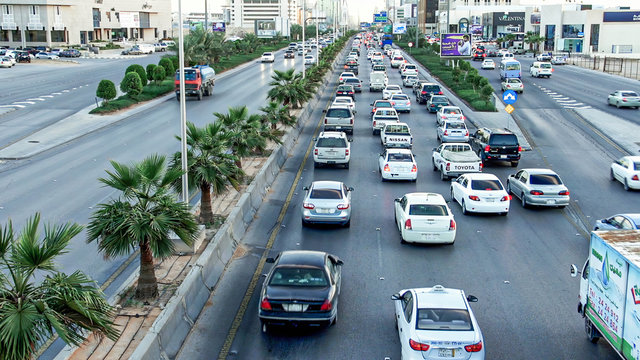As Saudi Arabia accelerates towards its Vision 2030 goals, infrastructure development is a cornerstone of its transformation strategy. The Kingdom's ambition to become a global logistics hub at the crossroads of three continents—Asia, Africa, and Europe—has made the modernization of its highway network an urgent priority. In this context, the Saudi Highway Code (SHC 101 – General) emerges as a vital document, offering standardized guidance for highway development, maintenance, and safety protocols across the country.
This blog explores in detail the scope, applicability, and significance of SHC 101, especially in the context of Saudi Arabia’s rapidly evolving infrastructure.

The Saudi Highway Code (SHC 101 – General) is the foundational document in a series of technical standards aimed at creating a cohesive and consistent approach to road and highway planning, design, and execution across the Kingdom. Developed under the Ministry of Transport and Logistic Services (MoTLS), SHC 101 addresses the pressing need for:
Previously, Saudi Arabia's highway standards suffered from:
SHC 101 was conceived to solve these challenges by incorporating best practices from global models—particularly from the American Association of State Highway and Transportation Officials (AASHTO)—while contextualizing them for Saudi Arabia’s unique climatic, economic, and logistical needs.
SHC 101 applies to all types of roads within the Kingdom, regardless of the agency or entity responsible for their construction or maintenance. It is intended for:
The code ensures that every stakeholder follows a standardized approach for consistency, safety, and quality.
SHC 101 is relevant across the entire lifecycle of a highway project, including:
This comprehensive coverage helps eliminate ambiguity and ensures all project phases are aligned with national strategic goals.
To maintain uniformity and compliance, SHC 101 outlines several procedural protocols:
From a technical standpoint, SHC 101 emphasizes:
SHC 101 organizes highway development into clearly defined phases:
Every project begins with a clear justification and alignment with broader transport and mobility goals.
This includes feasibility studies, route alignment analysis, traffic forecasting, and geotechnical investigations.
Design stages include preliminary and detailed design reviews, technical drawings, and compliance with SHC volumes.
Final approval requires the submission of as-built drawings, safety audits, and environmental compliance reports.
While SHC 101 maintains strict standards, it acknowledges that real-world constraints may necessitate deviations. The code allows:
This makes the SHC flexible enough to handle diverse regional conditions across the Kingdom.
SHC 101 acts as the gateway to a broader framework, which includes several specialized volumes:
Each volume addresses specific aspects of road development to ensure thorough and coordinated project execution.
Saudi Arabia’s strategic goal of becoming a global logistics hub and enhancing domestic connectivity is deeply intertwined with SHC 101. Here's how:
In summary, SHC 101 is more than just a technical document—it is a national roadmap for safe, sustainable, and efficient highway development in Saudi Arabia. It reflects the Kingdom’s forward-thinking approach to infrastructure, anchored in global best practices but tailored to local needs. As Saudi Arabia continues its journey toward Vision 2030, SHC 101 will play a foundational role in shaping a world-class highway system that meets both present and future demands.
RoadVision AI is revolutionizing road infrastructure development and maintenance by leveraging cutting-edge AI in road safety and computer vision technology. Through advanced digital twin technology, the platform performs comprehensive road safety audits, enabling early detection of potholes, cracks, and other surface issues, ensuring timely repairs and improved road conditions. It also enhances traffic surveys by providing data-driven insights to address challenges like traffic congestion and optimize road usage. With a focus on building smart roads, RoadVision AI ensures full compliance with IRC Codes, empowering engineers and stakeholders to reduce costs, minimize risks, and improve the overall road safety and transportation experience.
It’s a code used in Saudi Arabia for highway design and planning.
It is used for major road projects, particularly high-speed corridors.
It aligns Saudi infrastructure with international safety and design standards.